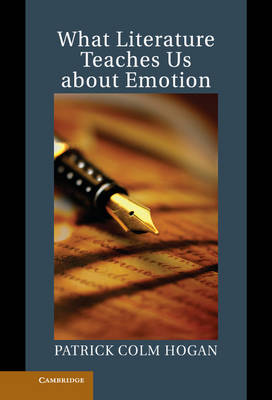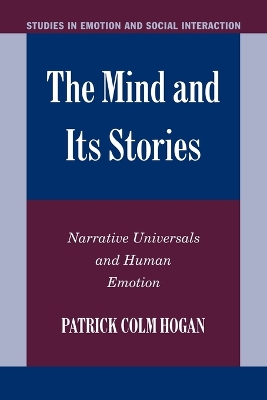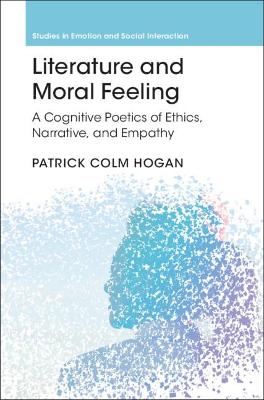Studies in Emotion and Social Interaction
3 total works
Literature provides us with otherwise unavailable insights into the ways emotions are produced, experienced and enacted in human social life. It is particularly valuable because it deepens our comprehension of the mutual relations between emotional response and ethical judgment. These are the central claims of Hogan's study, which carefully examines a range of highly esteemed literary works in the context of current neurobiological, psychological, sociological and other empirical research. In this work, he explains the value of literary study for a cognitive science of emotion and outlines the emotional organization of the human mind. He explores the emotions of romantic love, grief, mirth, guilt, shame, jealousy, attachment, compassion and pity - in each case drawing on one work by Shakespeare and one or more works by writers from different historical periods or different cultural backgrounds, such as the eleventh-century Chinese poet Li Ch'ing-Chao and the contemporary Nigerian playwright Wole Soyinka.
There are profound, extensive, and surprising universals in literature, which are bound up with universals in emotion. Hogan maintains that debates over the cultural specificity of emotion are misdirected because they have ignored a vast body of data that bear directly on the way different cultures imagine and experience emotion - literature. This is the first empirically and cognitively based discussion of narrative universals. Professor Hogan argues that, to a remarkable degree, the stories people admire in different cultures follow a limited number of patterns and that these patterns are determined by cross-culturally constant ideas about emotion. In formulating his argument, Professor Hogan draws on his extensive reading in world literature, experimental research treating emotion and emotion concepts, and methodological principles from the contemporary linguistics and the philosophy of science. He concludes with a discussion of the relations among narrative, emotion concepts, and the biological and social components of emotion.
An influential body of recent work on moral psychology has stressed the interconnections among ethics, narrative, and empathy. Yet as Patrick Colm Hogan argues, this work is so vague in its use of the term 'narrative' as to be almost substanceless, and this vagueness is in large part due to the neglect of literary study. Extending his previous work on universal story structures, Hogan argues that we can transform ill-defined intuitions about narrative and ethics into explicit and systematic accounts of the deep connections between moral attitudes and narratives. These connections are, in turn, inseparable from empathy, a concept that Hogan proceeds to clarify and defend against a number of widely read critiques. In the course of the book, Hogan develops and illustrates his arguments through analyses of global narratives, constructing illuminating ethical interpretations of literary works ranging from Shakespeare to Chinese drama and the Bhagavad Gita.


